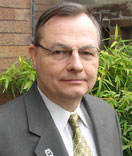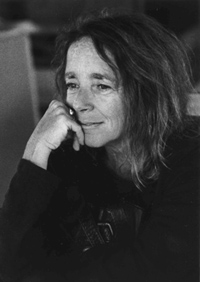A Quote by Patricia Aburdene
Today we are on the brink of another extraordinary revolution. The Information Age is already over and an exciting new epoch is taking its place. Remember, the key point is this: When wealth is derived from a new source - say information rather than industry - a new economic era is born.
Related Quotes
The information revolution has changed people's perception of wealth. We originally said that land was wealth. Then we thought it was industrial production. Now we realize it's intellectual capital. The market is showing us that intellectual capital is far more important that money. This is a major change in the way the world works. the same thing that happened to the farmers during the Industrial Revolution is now happening to people in industry as we move into the information age.
Through the information the Pleiadians bring, we come into a new innate understanding of ourselves, and a new remembering. That really allows us to move forward on our path with that information. It's empowering. It puts things in perspective, back into place. It makes sense of everything that we are and what we're doing here, and what we have done and where we are going.
Housing has always been a key to Great Resets. During the Great Depression and New Deal, the federal government created a new system of housing finance to usher in the era of suburbanization. We need an even more radical shift in housing today. Housing has consumed too much of our economic resources and distorted the economy. It has trapped people who are underwater on their mortgages or can't sell their homes. And in doing so has left the labor market unable to flexibly adjust to new economic realities.
To be born again is, as it were, to enter upon a new existence, to have a new mind, a new heart, new views, new principles, new tastes, new affections, new likings, new dislikings, new fears, new joys, new sorrows, new love to things once hated, new hatred to things once loved, new thoughts of God, and ourselves, and the world, and the life to come, and salvation.
Though we [Humanists] take a strict position on what constitutes knowledge, we are not critical of the source of ideas. Often intuitive feelings, hunches, speculation, and flashes of inspiration prove to be excellent sources of novel approaches, new ways of looking at things, new discoveries, and new information. We do not disparage those ideas derived from religious experience, altered states of consciousness, or the emotions; we merely declare that testing these ideas against reality is the only way to determine their validity as knowledge.
If there is any period one would desire to be born in, is it not the age of Revolution; when the old and the new stand side by side, and admit of being compared; when the energies of all men are searched by fear and by hope; when the historic glories of the old can be compensated by the rich possibilities of the new era?
I think the critical point, really, is that we need to focus black economic empowerment more on the creation of new wealth rather than on these big deals that have been characteristic of this process in the past, of people going to banks, borrowing a lot of money, buying this and when the shares don't perform very well, the shares go back to the banks, because there's other people who own this anyway. I think we need to re-focus it so that it really does impact on growth, new investment, new employment and a general, better spread of wealth in South Africa.
I think people look at revolution too much in terms of power. I think revolution has to be seen more anthropologically, in terms of transitions from one mode of life to another. We have to see today in light of the transition, say, from hunting and gathering to agriculture, and from agriculture to industry, and from industry to post-industry. We're in an epoch transition.


































